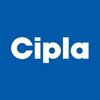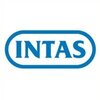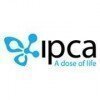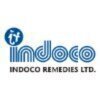Filter interviews by
Lupin Production Officer Interview Questions, Process, and Tips
Lupin Production Officer Interview Experiences
14 interviews found
(6 Questions)
- Q1. Handling of Validation
- Ans.
Validation in production involves ensuring that processes and products meet quality standards.
Validation involves verifying that equipment, processes, and systems are operating correctly and consistently.
Validation also includes confirming that products meet specifications and quality standards.
Documentation of validation activities is essential for regulatory compliance and continuous improvement.
Examples of validatio...
- Q2. Operations of reactors, centrifuge, sparker filters, anfds, ejectors.
- Q3. Handling of Qualifications
- Q4. Handling of Safety permits
- Ans.
Safety permits are essential for ensuring compliance with regulations and maintaining a safe work environment.
Safety permits are required for certain activities or equipment to ensure they meet safety standards.
Production officers must be familiar with the types of safety permits needed in their industry.
They are responsible for obtaining and renewing safety permits as needed.
Failure to comply with safety permit requir...
- Q5. Operation of Distillation
- Ans.
Distillation is a process used to separate components of a liquid mixture based on differences in boiling points.
Distillation involves heating the liquid mixture to create vapor, then cooling the vapor to condense it back into liquid form.
The components with lower boiling points will vaporize first and be collected as the distillate, while the components with higher boiling points remain in the original container.
Commo...
- Q6. Handling of Deviations
- Ans.
Deviations in production processes must be promptly identified, investigated, and documented to ensure product quality and compliance.
Deviation should be reported immediately to the appropriate personnel
Investigate the root cause of the deviation
Document all findings and actions taken
Implement corrective and preventive actions to prevent recurrence
Review and approve deviation reports before closure
(5 Questions)
- Q1. Handling of CAPA
- Ans.
CAPA refers to Corrective and Preventive Actions taken to address non-conformities and prevent recurrence.
Identify the root cause of the issue
Develop a corrective action plan to address the issue
Implement the corrective action plan
Monitor the effectiveness of the corrective action
Implement preventive actions to prevent recurrence
- Q2. What is DATA INTIGRIY
- Ans.
Data integrity refers to the accuracy, consistency, and reliability of data throughout its lifecycle.
Ensuring data is accurate and reliable
Maintaining consistency of data
Preventing unauthorized access or modifications
Implementing data validation processes
Regularly backing up data to prevent loss
- Q3. Handling Solvents
- Q4. Handling of Batch failures
- Ans.
Batch failures should be analyzed to identify root causes and prevent future occurrences.
Investigate the root cause of the batch failure
Implement corrective actions to prevent future failures
Document the findings and actions taken for future reference
Communicate with relevant stakeholders about the batch failure and resolution
Conduct a review of the production process to identify potential areas for improvement
- Q5. Handling of Deviations
- Ans.
Handling of deviations involves identifying, investigating, and resolving any deviations from standard procedures or specifications.
Deviation should be documented and reported immediately
Investigate root cause of deviation
Implement corrective and preventive actions
Review and update procedures to prevent future deviations
(3 Questions)
- Q1. Current Role and responsibilities
- Q2. Personal information
- Q3. Salary discussion
Interview Preparation Tips
2. Safety and MSD
3.why shifting is required
4.What is the importance of blending
5 type of GMP practices you are following
6. Information from BMR
How dis lation happen
7. About MSDS
8. Why work permit system is required
9. Difference between incident and accident:
10.Work permits
*1)* What is GMP/cGMP as per your understanding? OR What do you know about GMP/cGMP?
*2)* What is Data Integrity?
Explain it with Examples.
*3)* What is Data Manipulation?
Explain with Examples.
*4)* What is meaning of Plant Capacity / Bottleneck / Equipment / Stage..?
*5)* Safety or Process Safety related to your Products.
What/Which kind of Safety Policy do you have in your current company?
*6)* ALCOA
PPE
PH
Chilled water temp
Deviation
GMP
EHS
Process
Operations
Current role and responsibilities
Solvent
Batch fail
CAPA
Validation, qualifications
Skills evaluated in this interview
I applied via Walk-in and was interviewed in Apr 2024. There was 1 interview round.
(2 Questions)
- Q1. Experienced in Pharmaceutics
- Q2. Troubleshooting
Interview Preparation Tips
I applied via Naukri.com and was interviewed in Feb 2024. There was 1 interview round.
(5 Questions)
- Q1. Tell me your about salf
- Ans.
I have a Bachelor's degree in Production Engineering and 5 years of experience in manufacturing processes.
Bachelor's degree in Production Engineering
5 years of experience in manufacturing processes
- Q2. Tell me higher study
- Ans.
Higher study refers to pursuing education beyond undergraduate level, such as postgraduate or doctoral studies.
Higher study involves pursuing education beyond undergraduate level
It can include postgraduate or doctoral studies
Higher study can lead to specialized knowledge and career advancement
- Q3. Sir my higher study is B . pharmacy
- Q4. Which critical parameters of coating process
- Ans.
Critical parameters of coating process include temperature, humidity, coating thickness, drying time, and coating uniformity.
Temperature control is crucial to ensure proper curing of the coating material.
Humidity levels can affect the drying time and adhesion of the coating.
Coating thickness must be monitored to meet specifications and ensure product quality.
Drying time should be optimized to prevent defects like crack...
- Q5. How many defects in coating process
- Ans.
The number of defects in the coating process can vary depending on various factors such as equipment, materials, and operator skill.
Defects in coating process can include uneven coating thickness, bubbles or air pockets, streaks, and contamination.
Common causes of defects include improper equipment calibration, poor quality materials, inadequate training of operators, and environmental factors.
Regular quality control c...
(2 Questions)
- Q1. What are the differences between HPLC and uplc
- Ans.
HPLC and UPLC are both analytical techniques used in chemistry to separate, identify, and quantify components in a mixture.
HPLC stands for High Performance Liquid Chromatography, while UPLC stands for Ultra Performance Liquid Chromatography.
UPLC uses smaller particle sizes in the column packing material, resulting in higher resolution and faster analysis times compared to HPLC.
UPLC typically operates at higher pressure...
- Q2. What are the production
- Ans.
Production refers to the process of creating goods or services using resources like labor, machinery, and raw materials.
Production involves converting inputs into outputs through various processes.
Efficient production requires proper planning, organization, and control.
Examples of production activities include manufacturing, farming, and construction.
Interview Preparation Tips
Lupin interview questions for designations
I applied via Naukri.com and was interviewed in Mar 2023. There were 3 interview rounds.

(1 Question)
- Q1. 1) What is Distillation column 2) Chlorine Gas TLV limit 3) All Reactor Types and handling
- Ans.
Questions related to distillation column, chlorine gas TLV limit, and reactor types and handling.
Distillation column is a separation process used to purify or separate components of a mixture.
TLV limit for chlorine gas is 1 ppm (parts per million).
Reactor types include batch, continuous stirred tank, plug flow, and fluidized bed reactors. Handling involves proper safety measures and monitoring of reaction conditions.
(1 Question)
- Q1. 1) Sallary Discussion
Interview Preparation Tips
Get interview-ready with Top Lupin Interview Questions
I applied via Campus Placement and was interviewed before Aug 2023. There were 3 interview rounds.
Basics of chemistry and industrial safety
Current affairs and current issues in industrial job
(2 Questions)
- Q1. What is chlorination
- Ans.
Chlorination is the process of adding chlorine to water or other substances to disinfect and kill bacteria and other harmful microorganisms.
Chlorination is commonly used in water treatment plants to make drinking water safe for consumption.
It is also used in swimming pools to kill bacteria and prevent the spread of waterborne illnesses.
Chlorination can be done using chlorine gas, liquid chlorine, or chlorine compounds ...
- Q2. What is unit operation and process
- Ans.
Unit operation is a single step in a process while process is a series of interconnected unit operations.
Unit operation is a distinct step in a chemical engineering process.
Process is a series of interconnected unit operations that work together to achieve a desired outcome.
Examples of unit operations include distillation, filtration, and mixing.
Examples of processes include production of pharmaceuticals, food processi
Interview Preparation Tips

(2 Questions)
- Q1. Please tell me your Introduction?
- Q2. Previous experience also technical questions about knowledge of specific department or machine or processes
(1 Question)
- Q1. Package decide on the basis of knowledge
Interview Preparation Tips
I applied via Approached by Company and was interviewed in Jun 2022. There was 1 interview round.
(2 Questions)
- Q1. Resume shortlist, fermentation centrifuge bioreactor
- Q2. Laminar air flow, fermentation, centrifuge
Interview Preparation Tips
- Fermentation centrifuge bioreact
updated resume and hard study
(2 Questions)
- Q1. What is tablets define
- Q2. Which types of capsule
Interview Preparation Tips
Nothing special interview depends only your knowledge

(1 Question)
- Q1. About current work experience
(1 Question)
- Q1. Salary discussion by HR
Interview Preparation Tips
Lupin Interview FAQs
Tell us how to improve this page.
Lupin Interviews By Designations
- Lupin Medical Representative Interview Questions
- Lupin Production Officer Interview Questions
- Lupin Officer Interview Questions
- Lupin Executive Interview Questions
- Lupin Senior Officer Interview Questions
- Lupin Research Associate Interview Questions
- Lupin Marketing Executive Interview Questions
- Lupin Quality Control Officer Interview Questions
- Show more
Interview Questions for Popular Designations
- Production Engineer Interview Questions
- Production Supervisor Interview Questions
- Production Manager Interview Questions
- Executive Production Interview Questions
- Production Interview Questions
- Senior Production Engineer Interview Questions
- Production Chemist Interview Questions
- Production Operator Interview Questions
- Show more
Lupin Production Officer Interview Process
based on 11 interviews
2 Interview rounds
- Technical Round
- HR Round
Production Officer Interview Questions from Similar Companies
Fast track your campus placements
Lupin Production Officer Reviews and Ratings
based on 211 reviews
Rating in categories
|
Officer
1.8k
salaries
| ₹1.6 L/yr - ₹8.8 L/yr |
|
Executive
1.8k
salaries
| ₹2 L/yr - ₹11.6 L/yr |
|
Research Associate
846
salaries
| ₹2 L/yr - ₹8 L/yr |
|
Senior Executive
734
salaries
| ₹5 L/yr - ₹17 L/yr |
|
Production Officer
655
salaries
| ₹2.1 L/yr - ₹7 L/yr |

Cipla

Dr. Reddy's

Zydus Lifesciences

Sun Pharmaceutical Industries
- Home >
- Interviews >
- Lupin Interview Questions >
- Lupin Production Officer Interview Questions























